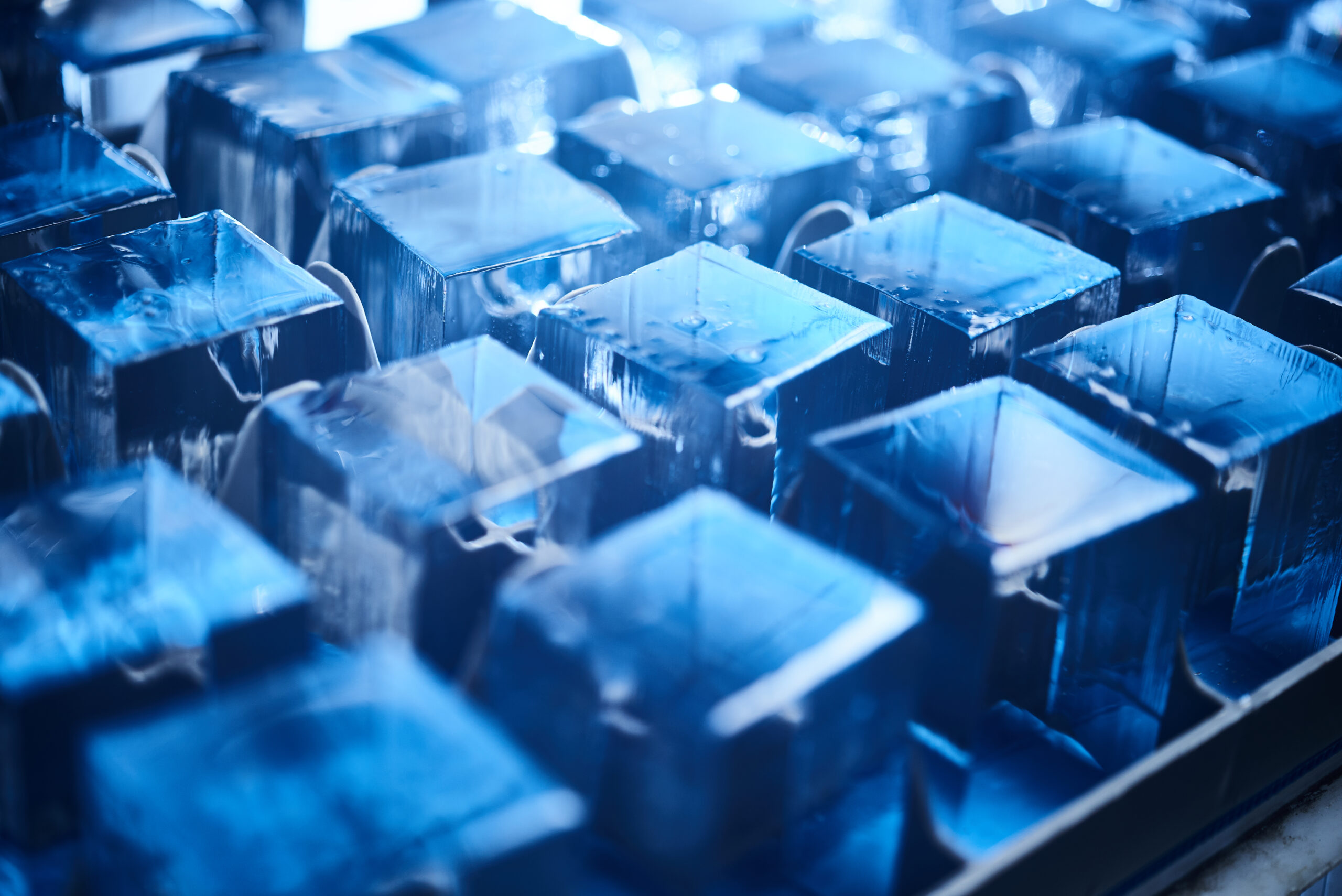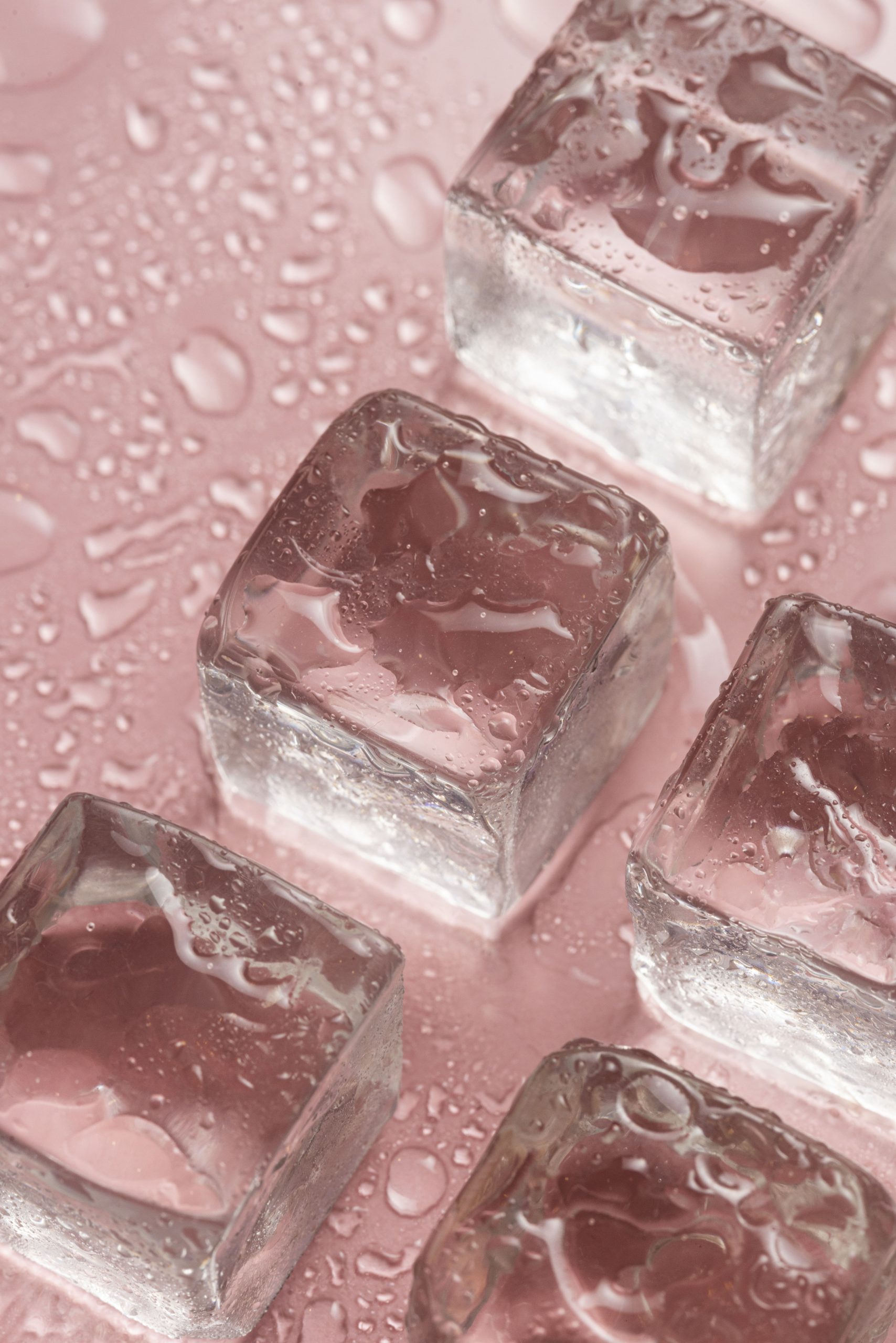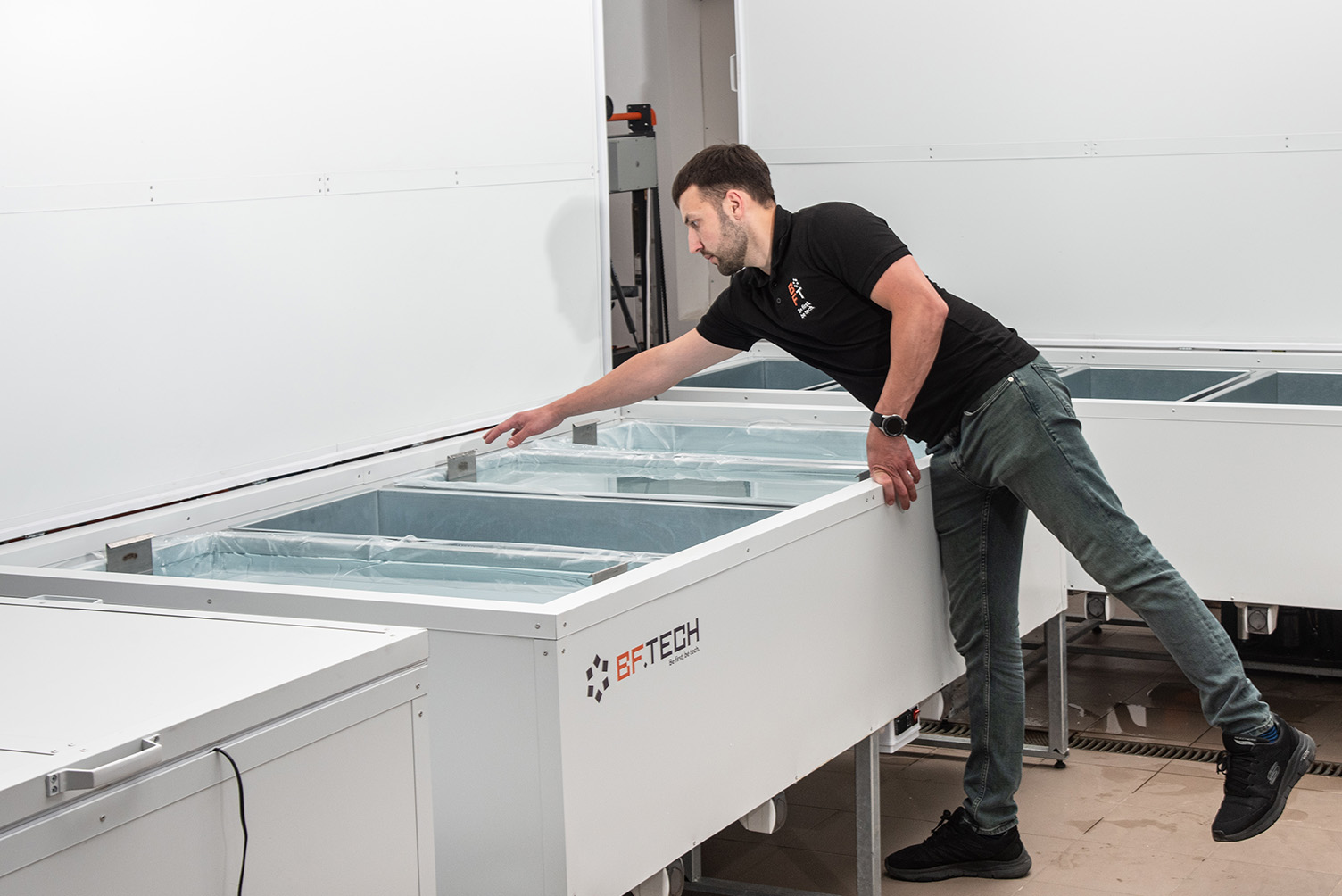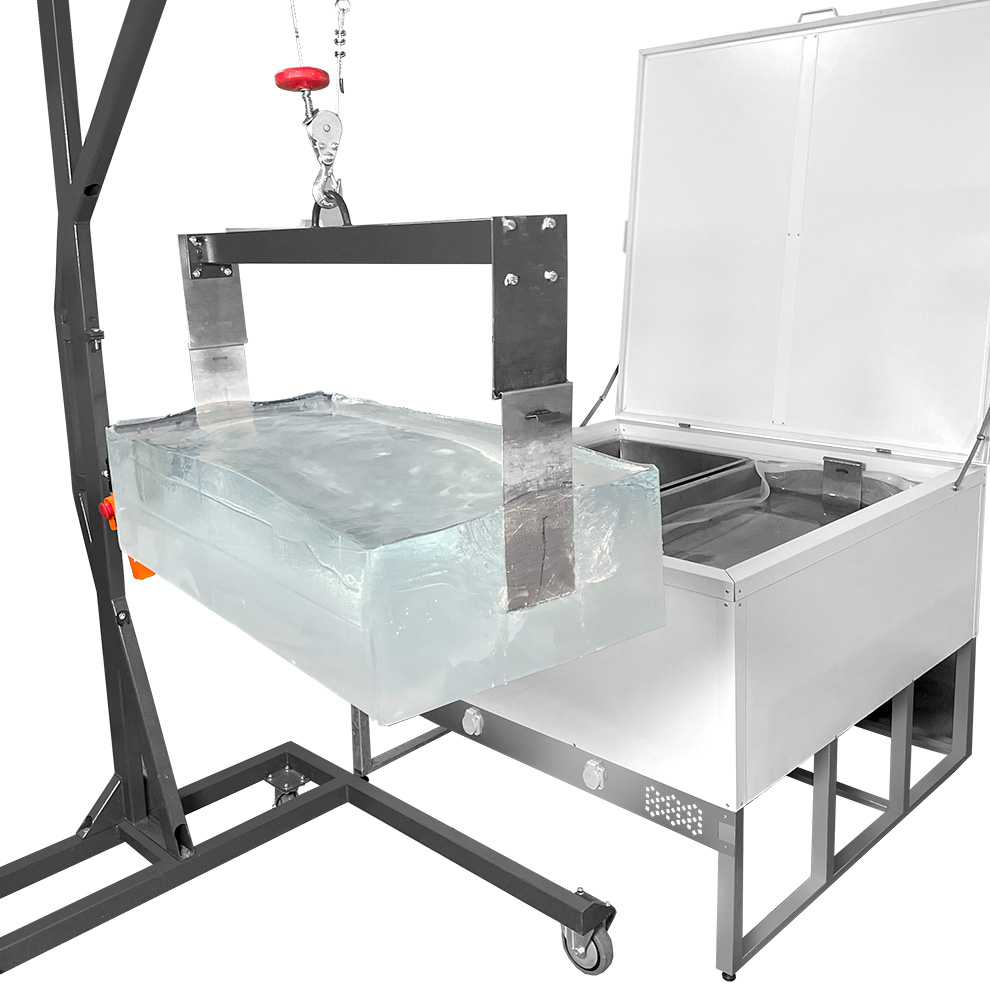Understanding How Long It Takes for Ice Cubes to Freeze
Exploring the Freezing Process
Have you thought about the fact that it may take different time for your ice cubes to freeze? On some occasions, the ice forms in a few hours while on the others, the freezing process takes so much time and seems as if the process would never end.
In this case, you might be wondering ‘How long does it take for ice cubes to freeze?’ and ‘How to make big ice cubes?’
Converting water into ice is not as simple as one might think. A wide range of factors may impact the speed or the magnitude of this transition.
In this article we will investigate why freezing works and the scientific principles that drive the process. What’s more, we will resolve the common query regarding the ice cubes freezing time. We’ll not only give you the necessary tips and tricks to see your ice formation instantly, but we’ll also share the secrets and give you practical advice to help speed up the process.
Factors Influencing Freezing Time
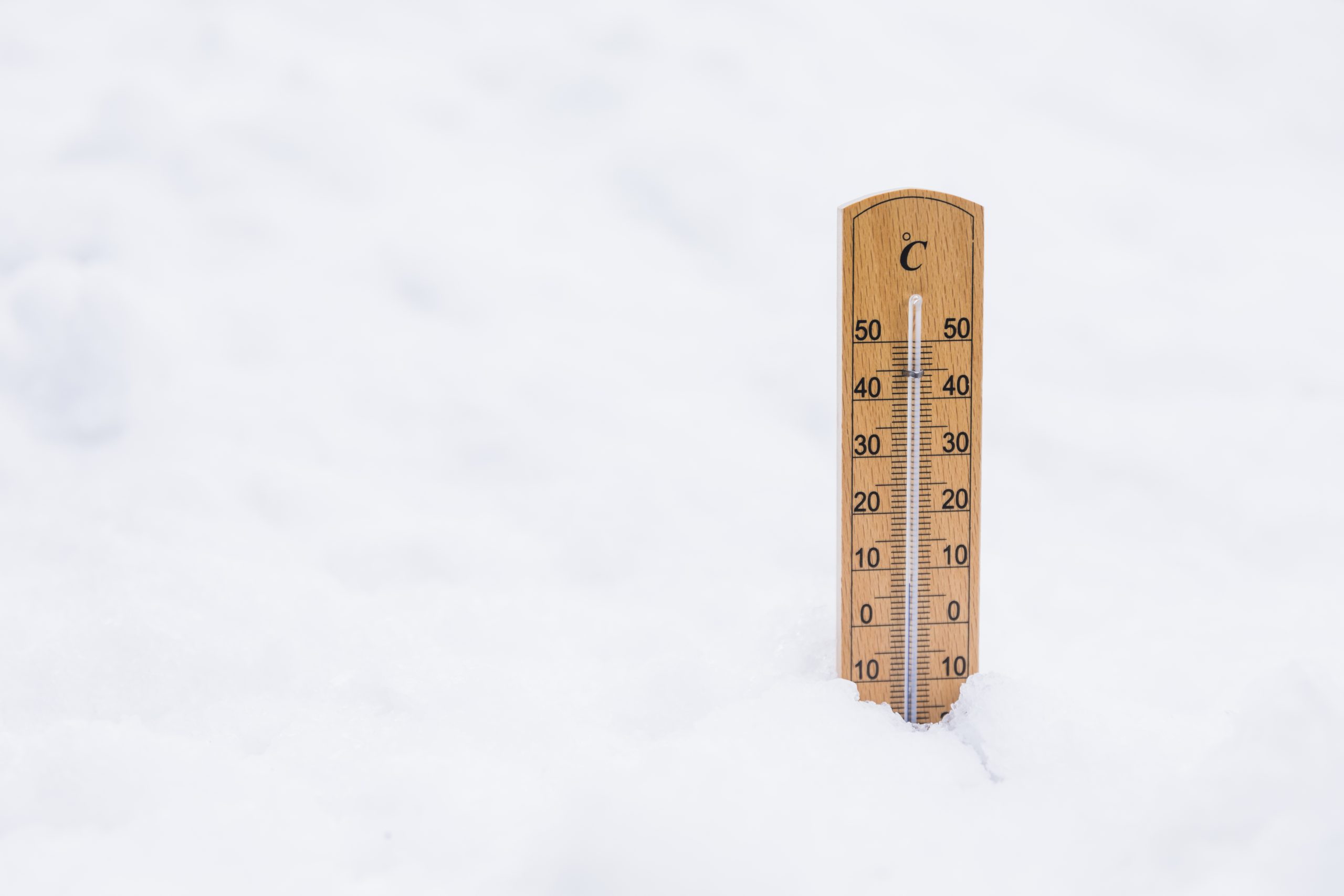
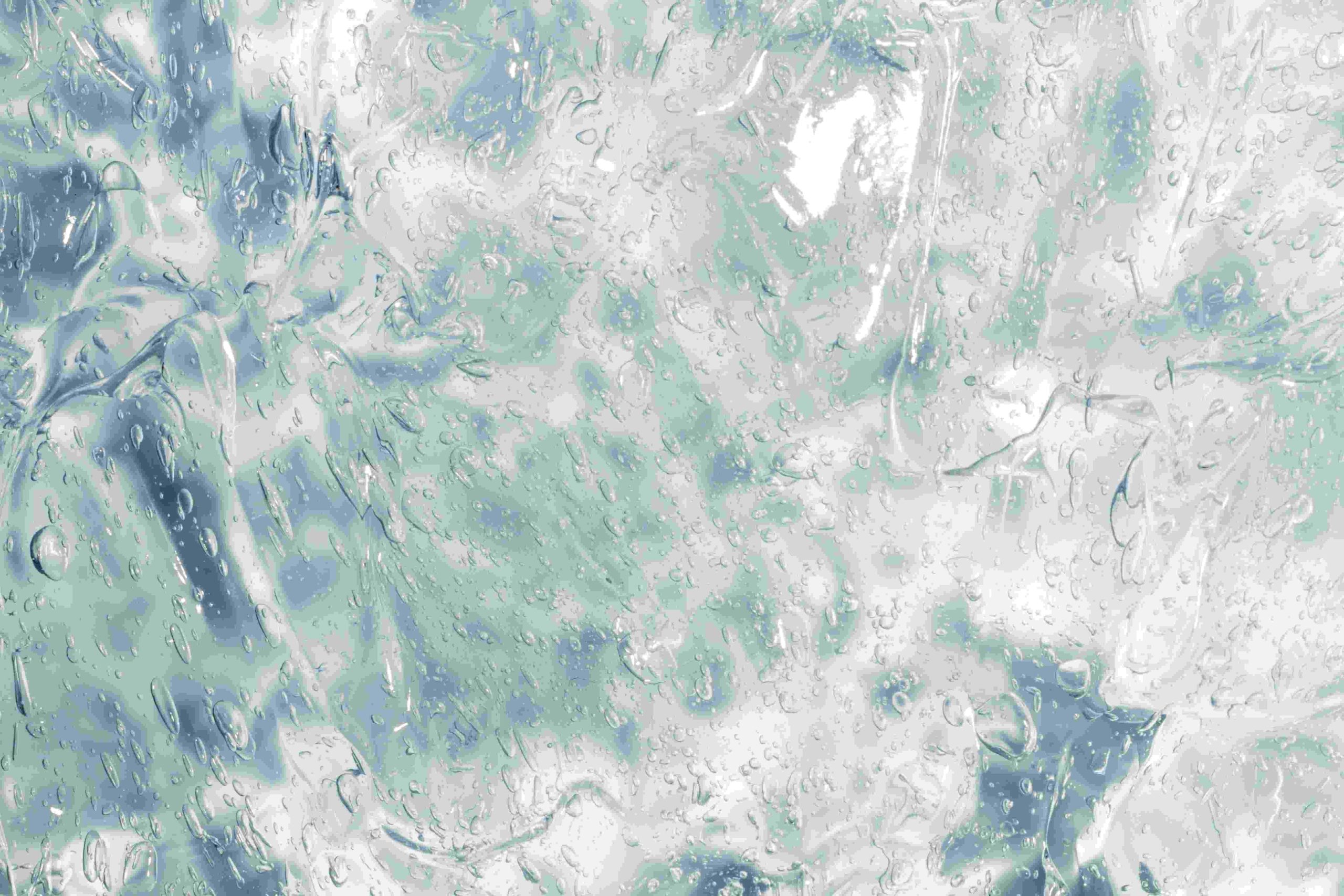
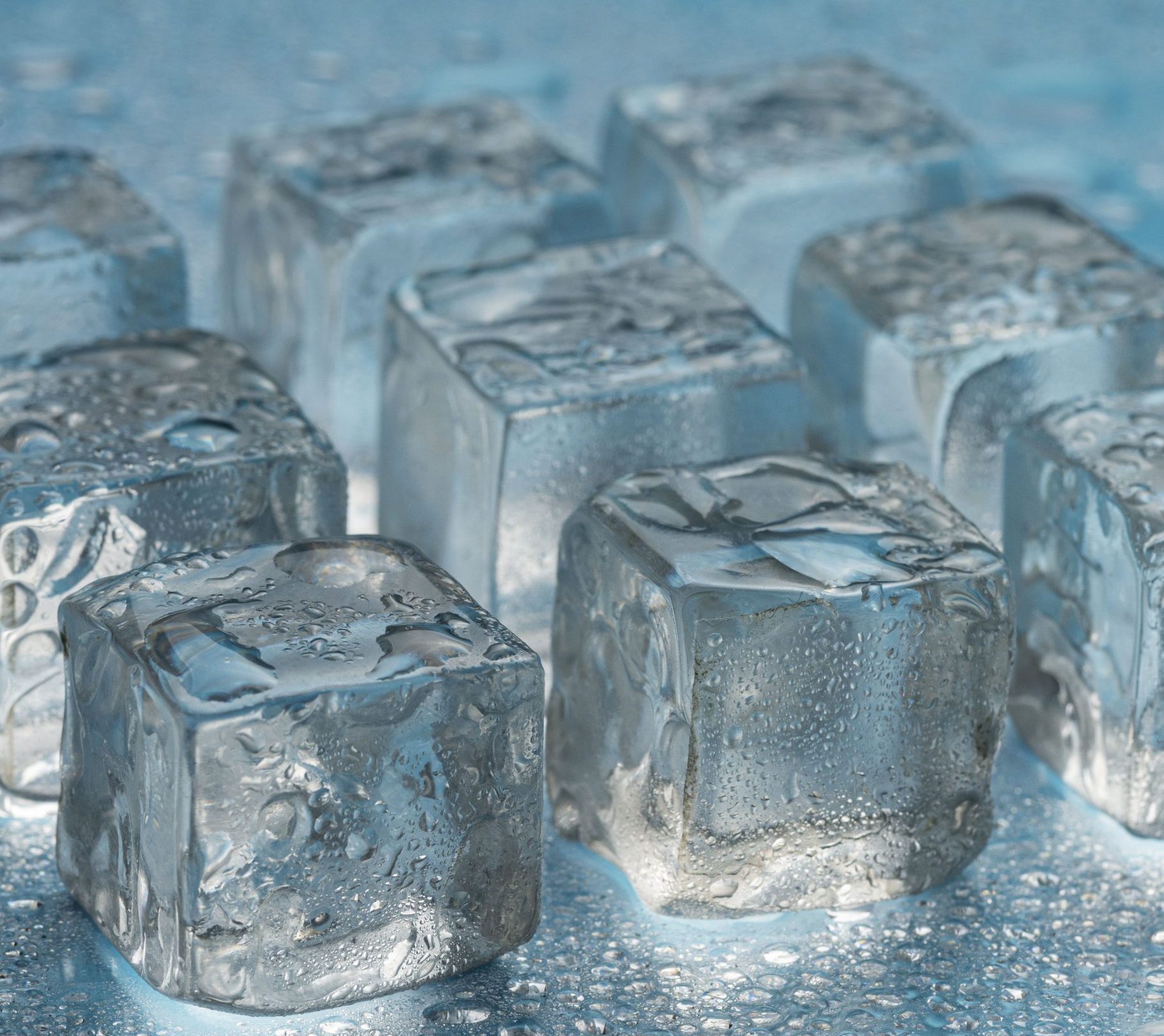
When you are asking the question ‘How long does ice cubes take to freeze? you need to take into account that the freezing process is more than just a cooling. The process is attributed to a phenomenon called nucleation. The aforementioned process is when water molecules begin to aggregate and form a crystalline structure.
While you are trying to achieve clear ice cubes or think about the duration required for the ice cube to form, you should clearly understand the factors influencing freezing time.
Here are pivotal aspects that could either hasten or delay the freezing process:
Freezer Temperature and Settings
The water freezing process varies and it depends extremely on the temperature of the air that you have selected for your freezer. People use -18°C as a base temperature but lower ones also may be applied in order to speed up this process.
It is vital to find the golden mean, because lower temperatures that make energy consumption grow do not have any significant effect on accelerating the procedure.
Water Composition and Purity
The quest for making clear ice cubes often hits a snag, mostly because of water purity. Impurities and dissolved gases in the tap water are the factors that slow down the freezing process and make an ice cube cloudy. On the one hand, filtered or distilled water can help to freeze quicker and give you clearer ice cubes which ultimately, make your drinks appear more attractive.
Freezer Material and Insulation
The type of freezer you use and how well it’s insulated are two factors that significantly influence the time needed for the ice cubes to freeze. For instance, block ice makers are designed to produce ice fast by quickly freezing water, a great advantage over the typical ice trays you would use in a home refrigerator.
Agitation and Movement
Surprisingly, stirring or agitating the water can also lead to quicker freezing. This effect is caused by the lack of a supercooled layer that may form around the ice cube that results in a more uniform freeze.
The Role of Freezer Temperature and Settings
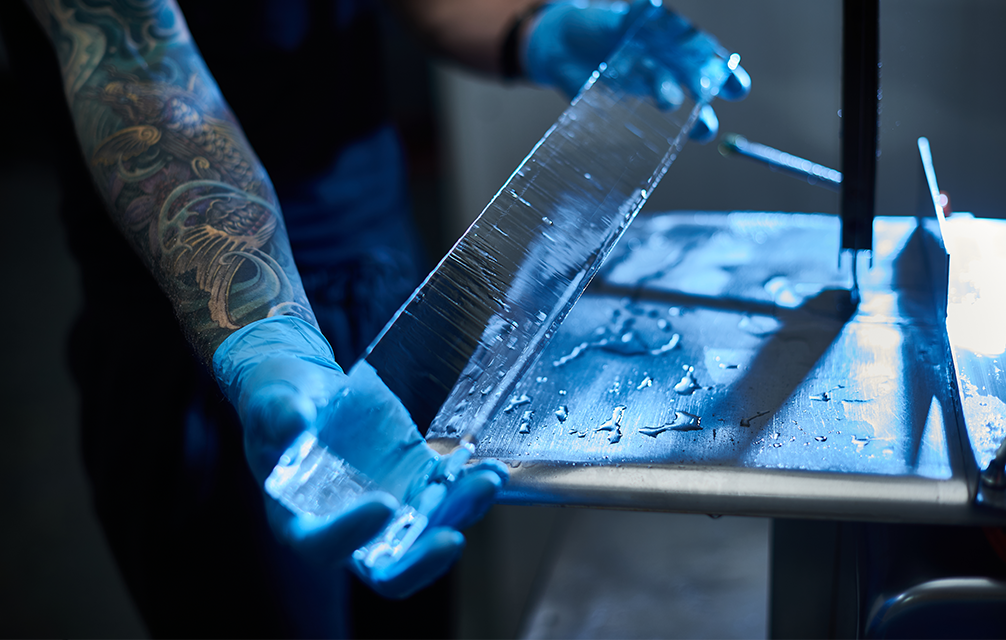
The importance of your freezer’s temperature and its settings can’t be understated when it comes to speeding up the process of making ice cubes.
Simply put, making your freezer colder is an effortless method to ensure water freezes quicker. This is because the chillier the surroundings, the quicker water hits its freezing point and starts to turn into ice.
But, how does this principle apply in everyday scenarios, and what are the best practices for setting your freezer for optimal ice production?
Impact on Freezing Time
The difference in freezing time when adjusting the temperature is not linear. For example, lowering your freezer’s temperature from 0°F to -5°F might reduce the freezing time for a batch of ice cubes, but the energy required to maintain this lower temperature could be significantly more.
Therefore, achieving a balance is essential. Efficient energy use and effective freezing can be maintained by keeping your freezer around the standard 0°F, ensuring it’s not overcrowded (which could hinder air circulation and extend freezing time), and regularly defrosting to avoid ice buildup that could insulate and warm the interior.
Optimal Settings for Ice Making
For clear ice cubes enthusiasts, investing in a block ice maker can make a difference. These devices are specially designed to freeze water more efficiently than standard freezers, often featuring mechanisms to circulate water or minimize air bubbles, thereby speeding up and clarifying ice production.
For example, BFTech’s block ice makers are calibrated to excel within typical freezer temperatures, outperforming traditional methods in both speed and clarity of ice production.
Expert Tips for Faster Freezing
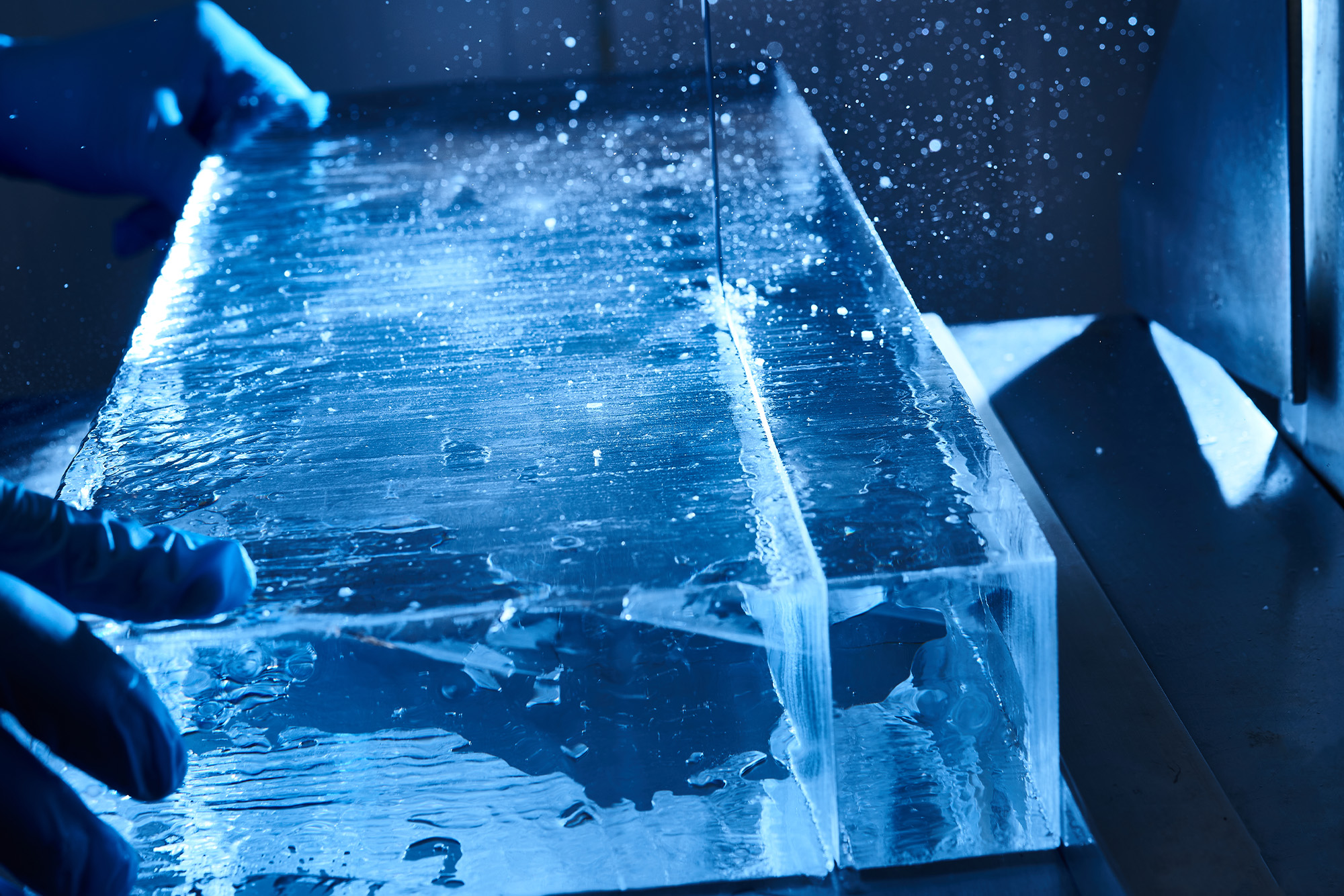
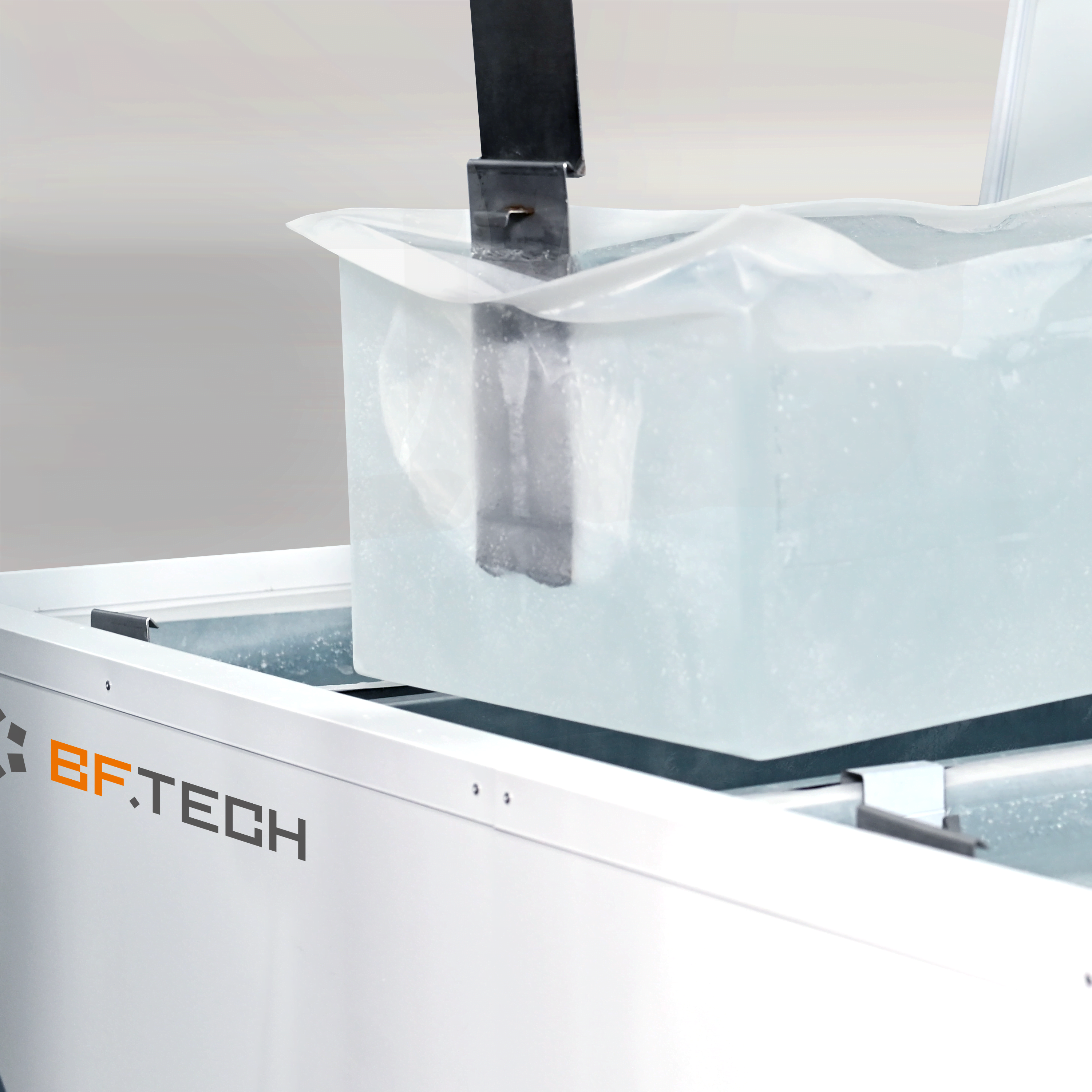
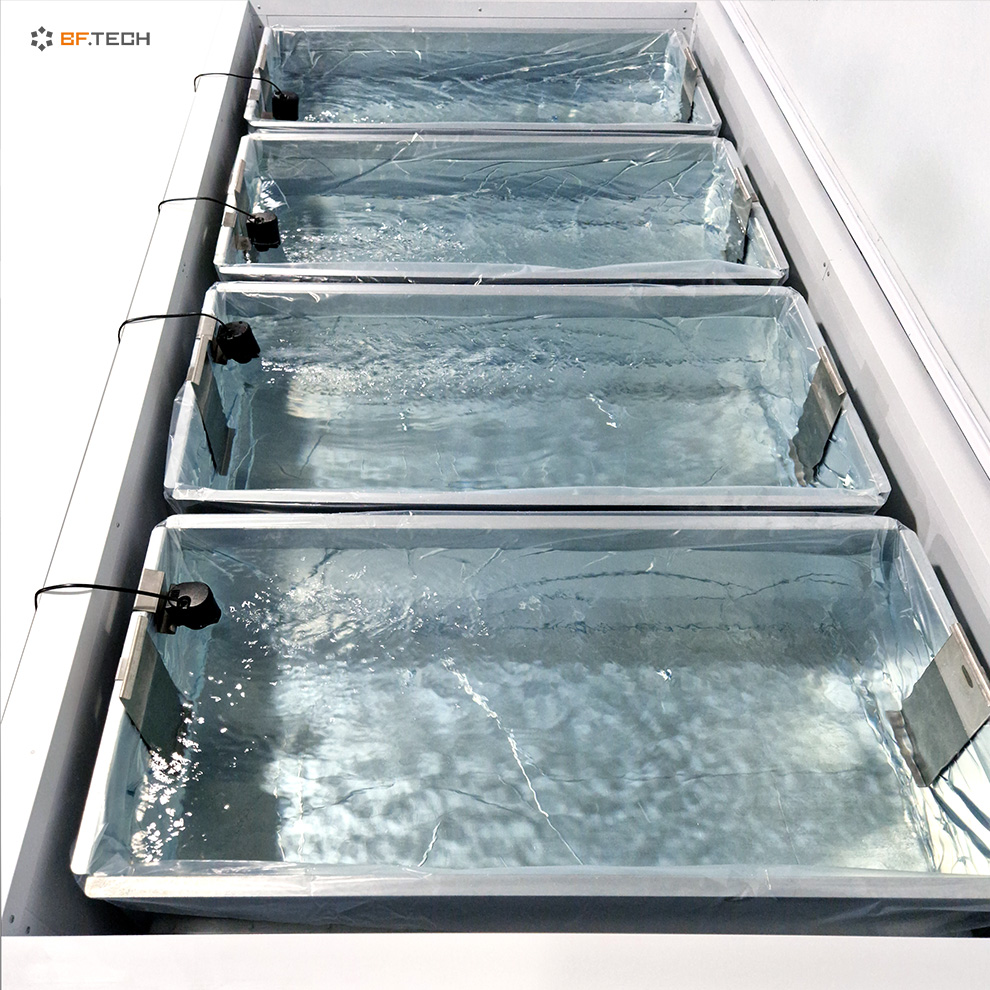
Perfecting the ice cube doesn’t have to involve a lengthy wait. Whether you’re a cocktail pro who knows how to make various refreshing drinks or ice cream, or an amateur with a favorite drink, these expert recommendations can
significantly reduce the time your ice cubes take to freeze.
Pre-chill Your Water
Starting with colder water can shave off a significant amount of time from the freezing process. By reducing the temperature difference between the water and the freezing point, ice formation begins sooner. This is a simple yet effective way to speed up freezing without any additional cost or effort.
Use Metal Ice Trays
Metal, being more efficient at conducting colds than plastic or silicone, emerges as the superior material for ice cube trays. Its enhanced thermal conductivity can shorten the freezing time, making it an invaluable tip for those who prefer standard ice trays to automated ice makers.
Minimize Airflow Around the Trays
Ensuring your freezer maintains adequate airflow is vital for its optimal operation. However, limiting the amount of direct air hitting your ice trays can actually enhance the speed of ice formation. The presence of direct airflow tends to lead to an inconsistent freeze and can result in a thin layer of air enveloping the water. This layer acts as insulation, decelerating the freezing process.
Opt for Smaller Ice Cube Sizes
The size of the ice cube significantly influences how long for ice cubes to freeze. Smaller cubes, with a greater surface area relative to their volume, freeze faster. If quick freezing is your priority, opting for trays that produce smaller cubes or adjusting your block ice maker to create smaller blocks can yield faster results and save you extra hours.
Invest in a High-Quality Ice Maker
People who are always thinking of ways to hasten the melting of ice and reduce time will find BFTech premium ice makers to be a game changer since they will never have to worry about the process ever again. Made with the sole aim of speeding up the freezing process, they employ the newest technology, such as high-grade precision, to increase the speed at which ice is produced and clarity compared to the traditional freezing methods.
How Long Does It Take for Big Ice Cubes to Freeze?
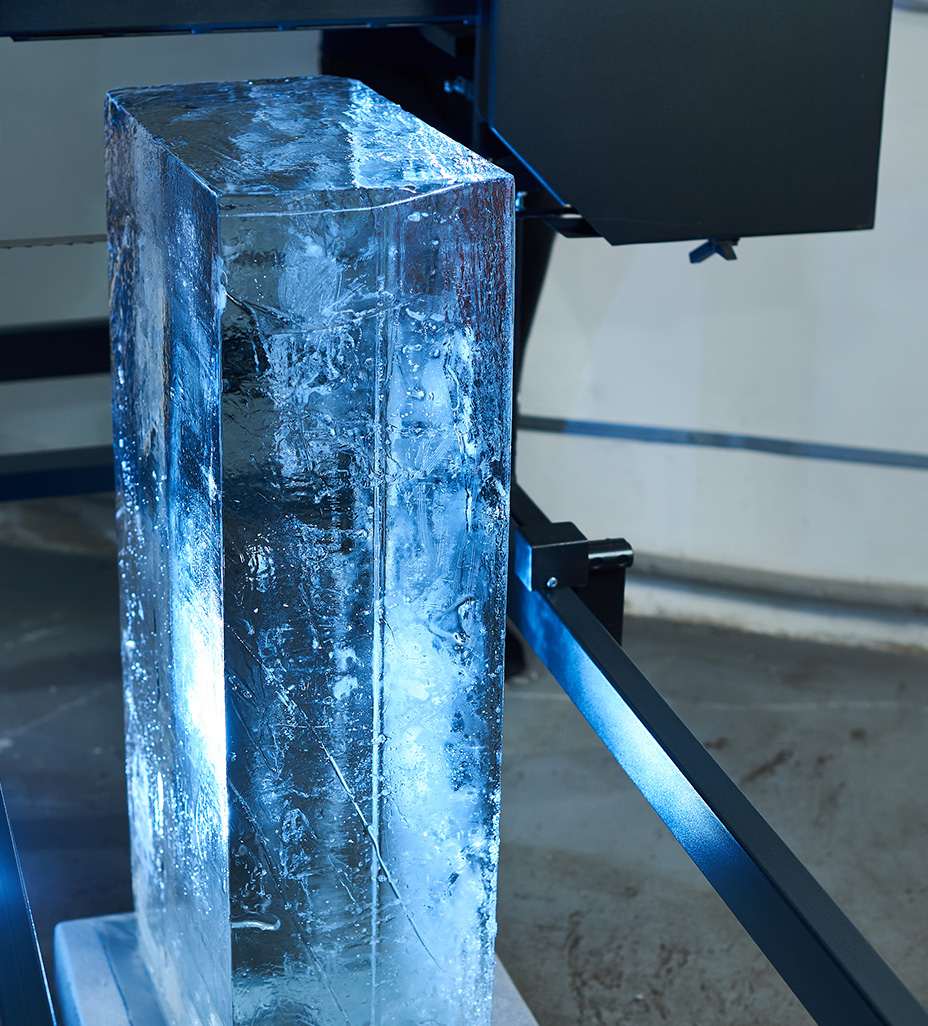
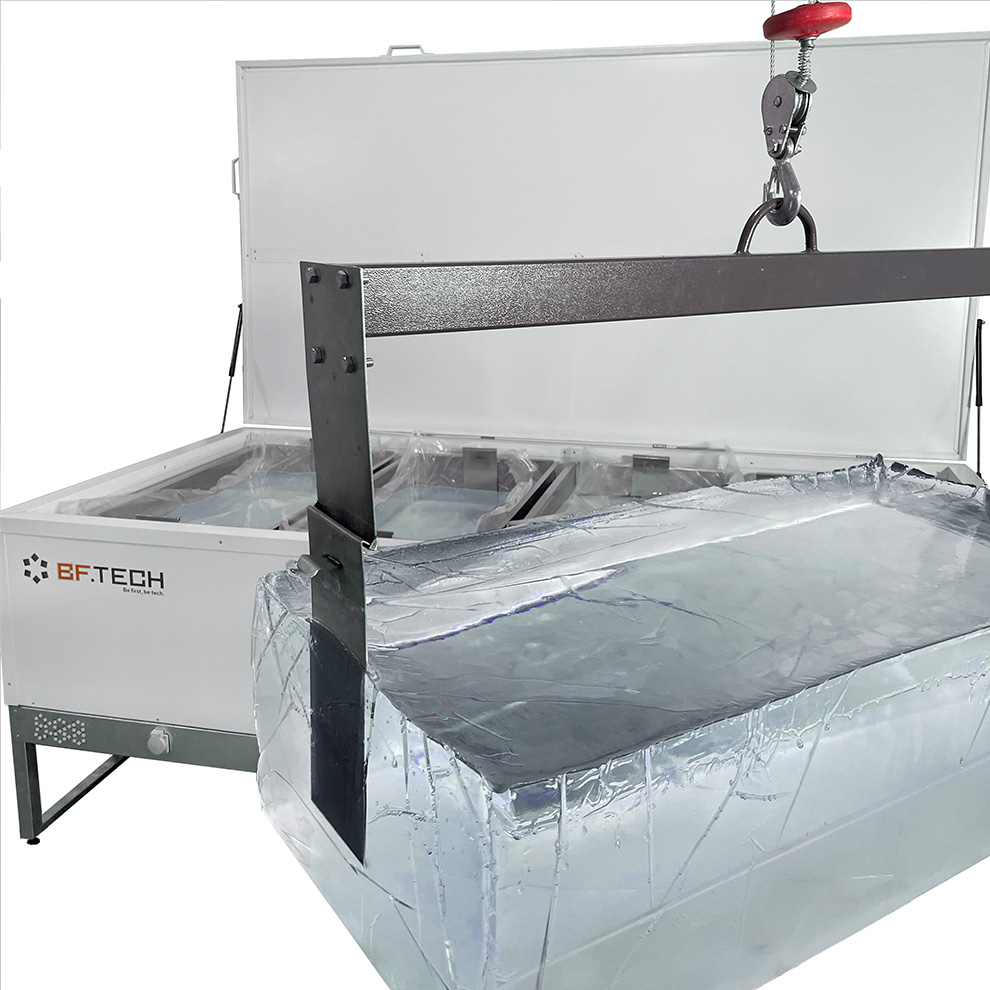
The ice dimension plays a leading part in both aesthetics and functionality. Specifically, larger size ice cubes not only contribute to a better visual effect but also melt at a slower rate. Such a feature ensures that you have cold drinks for a long time without being watered down.
But, how long does it take for ice cubes to freeze? And what can you do to reduce this time while still achieving the perfect cube?
The Basics of Freezing Large Ice Cubes
Now, let’s move on to the question ‘How to make big ice cubes?’. When it comes to freezing ice cubes, their size plays a crucial role in how long they’ll take to freeze.
For instance, smaller ice cubes, around 1 inch cubed, usually solidify within 3 to 4 hours in a standard home freezer set to 0°F (-18°C). On the other hand, bigger ice cubes, those 2 inches or more in size, might need at least 24 hours to fully freeze. This longer duration is because there’s more water in larger cubes, and it takes more time for the cold to
reach and freeze the water all the way to the middle of the cube.
Factors Affecting Freezing Time for Large Ice Cubes
Several factors can influence how long it takes for big ice cubes to freeze, including:
Freezer temperature: A lower temperature setting can slightly speed up the process.
Water temperature: Starting with cold water can reduce freezing time.
Tray material: Metal trays or molds conduct cold more efficiently than plastic, facilitating quicker freezing.
Positioning in the freezer: Locating the ice tray in the freezer’s coldest spot, typically at the back, can expedite ice cube formation.
Enhancing Freezing Efficiency for Large Ice Blocks
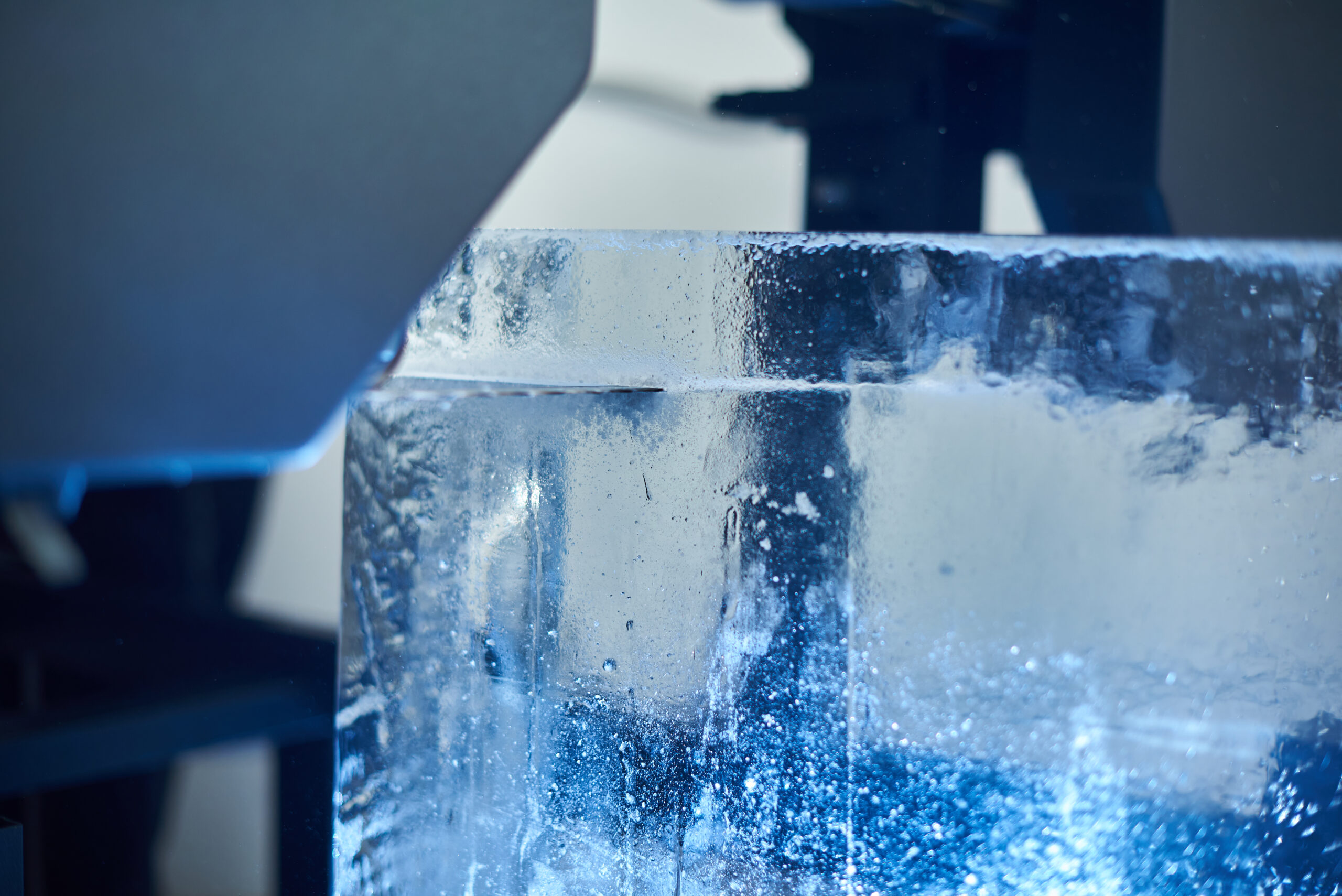

Maximizing the efficiency of freezing large ice blocks is essential, especially for those not using block ice makers from BFTech.
Here’s how to streamline the process:
1. Optimal Freezer Settings
For large ice blocks, maintaining your freezer between -5°F and 0°F (-20°C to -18°C) balances efficiency and energy use. This range speeds up freezing while minimizing excess consumption.
2. Water Quality
Using filtered or distilled water not only speeds up freezing but also ensures your ice is crystal clear. Impurities slow down freezing and can cloud your ice, detracting from its appearance.
3. Advanced Insulation
The construction of your freezer impacts freezing times. BFTech’s block ice makers are engineered with superior insulation and materials, promoting faster and more uniform freezing of large blocks.
4. Controlled Agitation
Some block ice makers incorporate mechanisms to gently agitate the water during freezing. This prevents the formation of supercooled layers, allowing for quicker and more consistent freezing.
Conclusion
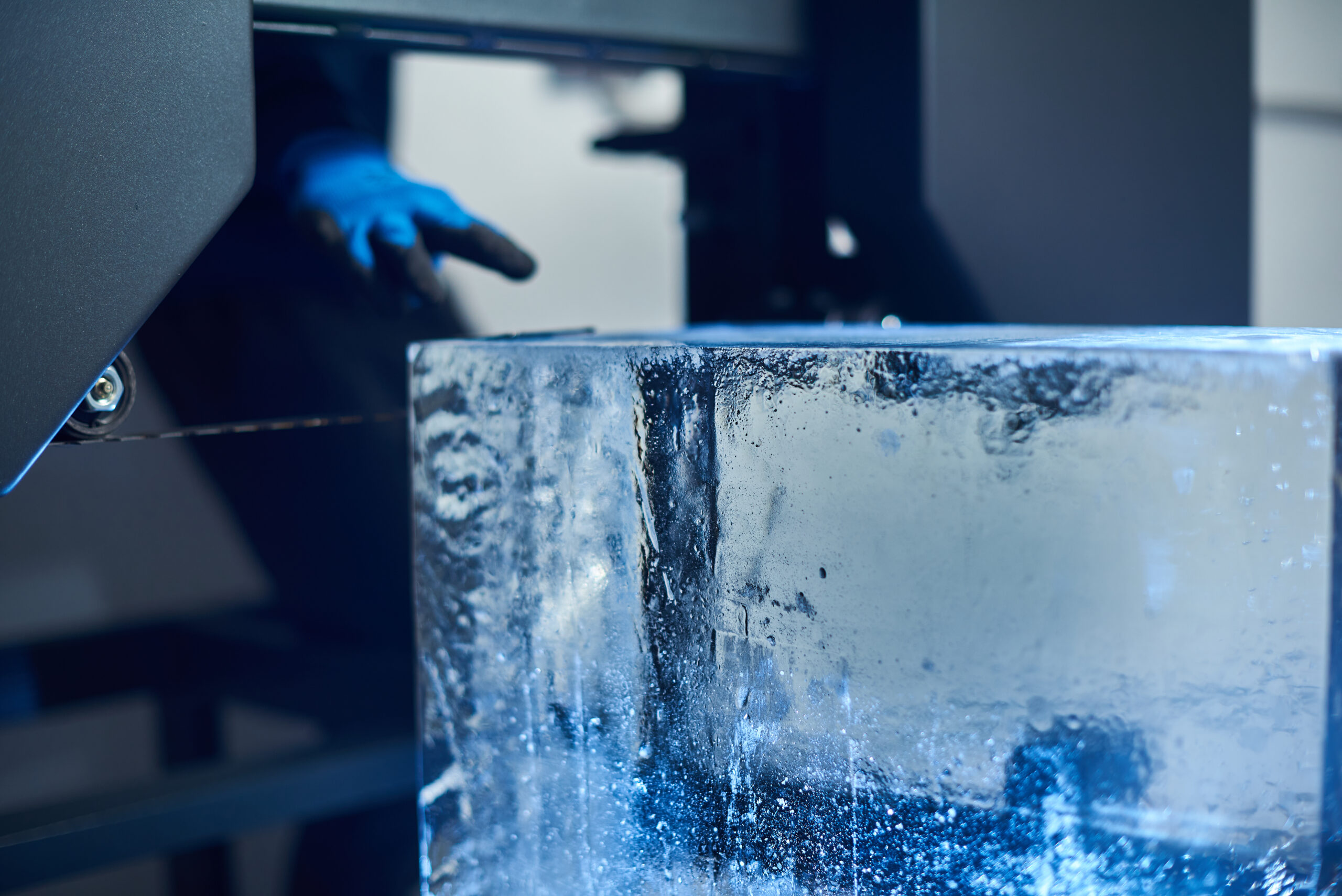
No matter whether you are a professional bartender, a restaurant owner, or simply a person who loves well-prepared drinks at home and needs ice for cocktails, knowing the details of how long it takes for ice cubes to freeze is all about improving your beverage experience.
We have explored numerous factors that influence rapid freezing as well as how to make the process quicker and clearer. Plus we answered the question ‘How long does it take for ice cubes to freeze?’ In fact, the path of water to ice, which at first glance might seem to be a simple one, is affected by various factors ranging from the settings of the freezer, water purity, and the type of basic trays used. With adjustments of these parameters, you will have a chance to lower the time necessary for your ice cubes to freeze, therefore, you will be able to get ice cubes whenever you need them.
You can also refine this process further by investing in a good ice maker, and BFTech does an excellent job in this area. Their ice makers are the most effective in terms of efficiency and clarity compared to traditional methods. The right tools and knowledge can totally change your ice-making process for the better.
FAQs
What is the optimal freezer temperature for fast ice cube formation?
For efficient water into ice cubes formation, setting your freezer to 0°F (-18°C) is optimal. This temperature strikes a perfect balance between quick freezing and minimal energy use, ensuring your ice cubes freeze solidly without driving up electricity costs.
Does using hot water speed up the freezing process?
Contrary to the popular belief inspired by the Mpemba effect, using cold water is actually more efficient for freezing ice cubes quickly. Hot or warm water water can evaporate slightly before freezing, which might reduce the volume but doesn't significantly speed up the process.
Can ice freeze in 30 minutes?
So, how long does ice cubes take to freeze? Under normal home freezer conditions, it's unlikely for ice to freeze completely in 30 minutes. Initial solidification can start within this time frame, but fully frozen cubes typically require 3 to 4 hours for water to freeze fully, depending on several factors like ice tray material and freezer temperature.
How do you freeze ice cubes faster?
Wondering how long for ice cubes to freeze? The key lies in lowering the water's starting temperature, opting for metal ice cube trays to enhance cold transfer, and adjusting your freezer to a cooler temperature. These methods effectively shorten the duration needed for the water to reach its freezing point and begin the transition into ice.
How long does it take for ice to fully freeze?
How long to make ice cubes? The process for standard 1-inch ice cubes to fully freeze spans approximately 3-4 hours when placed in a household freezer maintained at 0°F (-18 degrees Celsius). However, the precise time frame can fluctuate depending on a variety of aspects, including the efficiency of your freezer, the initial temperature of the water, cold surface and water volume, the type of ice maker trays, and the construction material of your ice mold.
